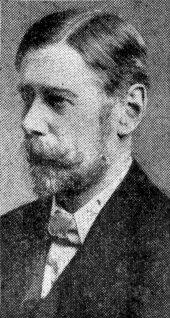Stephen Gwynn
| Stephen Gwynn | |
|---|---|
 |
|
| Member of Parliament for Galway Borough |
|
|
In office 1906–1918 |
|
| Personal details | |
| Born | 13 February 1864 St Columba's College, Dublin |
| Died | 11 June 1950 Terenure, Dublin |
| Political party |
Irish Parliamentary Party (before 1919) Irish Centre Party (1919) Irish Dominion League (1919) |
| Alma mater | Brasenose College, Oxford |
| Religion | Church of Ireland |
| Military service | |
| Allegiance |
|
| Service/branch |
|
| Years of service | 1915-1919 |
| Rank | Captain |
| Unit |
Prince of Wales's Leinster Regiment (Royal Canadians) Connaught Rangers |
| Battles/wars | First World War |
| Awards | Legion of Honour (1915) |
Stephen Lucius Gwynn (13 February 1864 – 11 June 1950) was an Irish journalist, biographer, author, poet and Protestant Nationalist politician. As a member of the Irish Parliamentary Party he represented Galway city as its Member of Parliament from 1906 to 1918. He served as a British Army officer in France during World War I and was a prominent proponent of Irish involvement in the Allied war effort. He founded the Irish Centre Party in 1919, but his moderate nationalism was eclipsed by the growing popularity of Sinn Féin.
He was born in Saint Columba's College in Rathfarnham, south County Dublin, where his father John (1827–1917), a biblical scholar and Church of Ireland clergyman, was warden. His mother Lucy Josephine (1840–1907) was the daughter of the Irish nationalist William Smith O'Brien. Stephen was the eldest of ten children (eight brothers and two sisters). Shortly after his birth the family moved to Ramelton in County Donegal to the parish where his father had been appointed parson; he later became Regius Professor of Divinity at Trinity College, Dublin. His sister Lucy Gwynn was the first woman registrar of Trinity.
Stephen Gwynn spent his early childhood in rural Donegal, which was to shape his later view of Ireland. He went to Brasenose College, Oxford, where, as scholar, in 1884 he was awarded first-class honours in classical moderations and in 1886 literae humaniores. During term holidays he returned to Dublin, where he met several of the political and literary figures of the day.
...
Wikipedia
